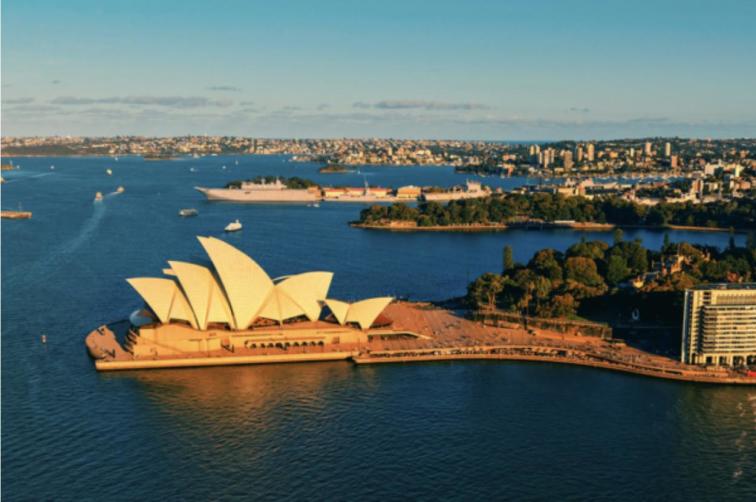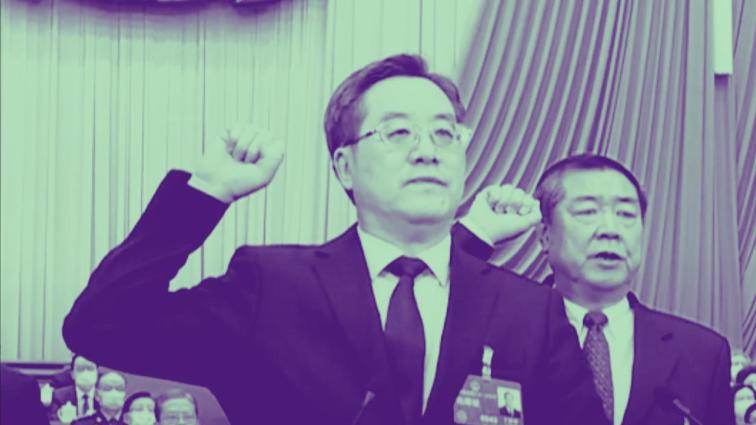On March 5, 2025, PLA delegates arrive at the Great Hall of the People in Beijing to attend the opening of the National People's Congress. (Photo by Kevin Frayer/Getty Images)
[People News] The CCP has announced that the Fourth Plenary Session will be held in Beijing in October. Some Japanese media believe that the delay of the plenary session until October reflects a weakening of Xi Jinping’s power base. Analysts also point out that signs of an anti-Xi faction within the military began emerging last year, and that this faction is now working to construct an “anti-Xi encirclement.”
At the CCP Politburo’s July meeting, it was announced that the Fourth Plenary Session would be held in October. Previously, outside sources widely circulated that the meeting would take place at the end of August. According to an August 13 article by Li Haoyu in Taiwan’s Up Media, the delay may be linked to Xi Jinping’s shaken grip on power.
Japan’s Daily Shincho on August 13 quoted Chinese military expert Saburo Tanaka as saying: “Within the CCP, power struggles between Xi Jinping’s faction and the opposing anti-Xi faction are intensifying. Essentially, this is why the plenary session could not be convened in August.”
Tanaka explained that with China’s economy in serious decline, Xi nevertheless openly declared plans to forcibly reunify Taiwan and ordered the military to prepare, which in turn has fueled opposition within the CCP to Xi’s military policies.
According to Tanaka, the anti-Xi camp believes that, given China’s current economic weakness, invading Taiwan is unthinkable. If Beijing attacks Taiwan, the U.S. will not stand idly by. Tanaka predicts that if events escalate into military conflict with the U.S., China will suffer devastating losses, and the CCP itself could collapse. Thus, the anti-Xi faction is planning to build an encirclement against Xi.
One key to understanding the open and hidden struggle between the Xi faction and anti-Xi faction, Tanaka observes, is personnel arrangements within the military.
In recent years, there have been a string of abnormal developments in PLA personnel.
Of the 79 generals promoted since Xi took office, at least 10 have been officially investigated or removed, including former defence ministers Wei Fenghe and Li Shangfu, former air force commander Ding Laihang, former Rocket Force commanders Li Yuchao and Zhou Yanin, Political Work Department director Miao Hua, as well as Strategic Support Force commander Ju Qiansheng and Rocket Force political commissar Xu Zhongbo—both dismissed without explanation.
Another 12 have not been formally announced as fallen, but are suspected of being under investigation or missing. These include CMC vice chairman He Weidong, Army political commissar Qin Shutong, Navy political commissar Yuan Huazhi, Western Theatre commander Wang Haijiang, Eastern Theatre commander Lin Xiangyang, Southern Theatre commander Wang Xiubin, CMC Political-Legal Commission head Wang Renhua, Political Work Department executive deputy director He Hongjun, PAP commander Wang Chunning, PAP political commissar Zhang Hongbing, and current Rocket Force commander Wang Houbin. Conservatively estimated, at least 22 generals promoted under Xi have “run into trouble”—a ratio of over 20 per cent.
The Central Military Commission is supposed to have six members, but only three remain, with three positions left vacant. Tanaka believes this may be due to anti-Xi forces pressuring officers: “joining the CMC means becoming Xi’s subordinate,” leading to the persistent vacancies.
Tanaka also noted clues in the PLA Daily on November 1, 2024. On the front page summary, Xi Jinping’s name was omitted, replaced with repeated emphasis on “the Party’s leadership.”
According to Tanaka, this showed the military’s stance: “We obey the Party’s leadership, but not Xi’s personal dictatorship.”
Further evidence came from August 10, 2023, when PLA Daily and the military’s online portal ran a lead article titled Adhere to Scientific, Democratic, and Law-Based Decision-Making. It stated: “Adhere to scientific decision-making, democratic decision-making, and law-based decision-making, and continuously improve the quality of decisions.”
Tanaka analysed that this “democratic decision-making” referred to collective decision-making by Party organs, not one-man rule—meaning the military had already begun criticising Xi’s dictatorship as early as last summer.
August 1 is the CCP’s so-called “Army Day.” Unusually, this year, no general promotion ceremony was held. Since the Jiang Zemin and Hu Jintao eras, and even in Xi’s early years, promotions on Army Day had been a regular practice. Especially amid today’s sweeping purge of military leadership, it was striking that Xi did not elevate any new generals. Analysts at the time suggested Xi may no longer have the power to promote them.
However, Tanaka also assessed that Xi is unlikely to step down in the short term. Perhaps by the CCP’s 2027 Party Congress, other developments may occur.
(First published by People News)











News magazine bootstrap themes!
I like this themes, fast loading and look profesional
Thank you Carlos!
You're welcome!
Please support me with give positive rating!
Yes Sure!